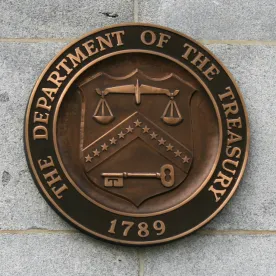The U.S. Department of the Treasury plans to withdraw proposed regulations issued in August 2016 that would have narrowed or eliminated taxpayers’ ability to claim valuation discounts on transfers of interests in family-controlled entities.
The Treasury Department’s October 2 announcement that it would withdraw the proposed regulations was part of a broader report on the Treasury Department’s review of tax regulations issued since January 1, 2016. The announcement identified one additional set of proposed regulations to be withdrawn entirely; three final, temporary, and proposed regulations to be revoked in part; and three final and temporary regulations to be substantially revised.
The proposed regulations restricting or eliminating taxpayers’ ability to claim valuation discounts on transfers of family-controlled entities were issued under Section 2704 of the Internal Revenue Code. That section limits taxpayers’ ability to claim lack-of-control or lack-of-marketability discounts on transfers of family-controlled partnerships and LLCs. Even under Section 2704, however, there were exceptions making it possible to claim valuation discounts on certain intra-family transfers. The proposed regulations would have narrowed or eliminated nearly all of the exceptions.
In its report, the Treasury Department stated that the proposed regulations’ approach was “unworkable” because the regulations would have burdened taxpayers, their advisers, the IRS, and the courts, and any policy gains to be realized from the proposed regulations were uncertain. Moreover, the report stated that the proposed regulations could affect valuation discounts even in situations where lack-of-control and lack-of-marketability discount factors were not created artificially to reduce a taxpayer’s gift or estate tax liability. The Treasury Department’s withdrawal of the proposed regulations is consistent with feedback it received during a public comment period in 2016.
In light of the planned withdrawal of the proposed regulations, clients, advisers, and valuation professionals may continue to analyze and value family-controlled entities under generally applicable valuation principles.


 />i
/>i

